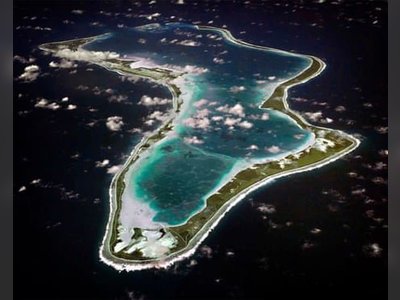
Vaccines the ‘best way out of this mess’
But as the territory hopes for the beginning of the end of the pandemic, questions are still swirling about who will get the Covid-19 vaccine and when; what it will
mean for the restrictions currently in place; and whether residents will even want to get vaccinated once given the opportunity.
Answers will soon become clearer, Chief Medical Officer Dr. Ronald Georges
said Monday.“The vaccine has not yet been approved a month yet,” he explained. “There’s a considerable amount of regulatory and
contractual obligations that the [United Kingdom] government has to abide with to be able to deliver the vaccine to us, which they are still working through and still have not confirmed.”
After that takes place, the details of how to distribute the jabs, and to who, will fall to VI health officials, according to the doctor.
The AstraZeneca vaccine the VI is slated to get, he added, is easy to transport and store at normal temperatures, and much of the infrastructure needed to
distribute it already exists here.
“We already have cold storage facilities; people are trained and systems in place to start providing the vaccine through public and private providers,” Dr. Georges said. “A number of private providers already have those things in place.”
However, the sheer volume of vaccines needed may still present a challenge.
“We don’t normally store eight to 10,000 doses of vaccine on the island, so we have to make additional arrangements to be able to store vaccines and equipment,” he said.
Getting the vaccine
In the next few weeks, the public also will start to get a better picture of how, when and where they can get a Covid-19 vaccine, according to the CMO.
As in the UK and other countries, some groups will be at the head of the queue.
“We’re looking at health care workers and frontline workers,” Dr. Georges explained. “We’re looking at over 65; those who have communicable diseases
who may be at risk. And then you come down the line after that. That being said, I don’t want to say first come, first served, but … those who are
more willing to receive in the early stages will more likely be accommodated than those who need more encouragement.”
Reluctance
Health officials are well aware that some residents are reluctant to get vaccinated, Dr. Georges added.
Two committees already have been established to tackle that issue: one for general communications to the public and one for stakeholder groups, including faith-based organisations, non-profits and country associations that represent expatriates.
The first committee will focus on “myth-busting, looking at misconceptions, frequently asked questions, factual information communicated to a wide cross-section of stakeholders,” Dr. Georges said.
The second “will not just be to identify any community resources that can be used, but also to inform channels of communication right to be able to send the messages directly to those stakeholders.”
The way out
The main message to get across to residents is simple, he stressed: “The vaccine is our best way out of this mess.”
Thus, he said, it could speed up the process of lifting the quarantine restrictions that continue to hamper the tourist economy, as well as affecting
every other aspect of pandemic life in the territory, from masking to social distancing.
But getting to that point won’t happen overnight.
“The vaccine is very effective in preventing severe disease,” Dr. Georges said. “It’s very effective in preventing hospitalisation from Covid. And it’s very effective at preventing death from Covid.”
For those reasons, it’s crucial that a large proportion of the population be vaccinated, he said, adding that the target is “anywhere in the region of 70 or
80 percent.”
“In particular, you want to get those who are at high risk of having severe disease, death or hospitalisation,” he said. “Once you’ve done that, Covid becomes less important. So once you’re in that situation, you can begin looking at relaxing your quarantine requirements. You can look at perhaps just testing people on entry or checking their vaccination status. And then you can consider letting them in.”
‘System in place’
If cases arise after that, either from the current Covid-19 strain or new strains that have begun to crop in countries such as the United Kingdom, “You already have a system in place for vaccinating the population rapidly,” he said.
As more countries have implemented the vaccinations, he added, health officials are learning more about how the process can affect the dynamics of the disease.
“The question still remains if perhaps [vaccinated people] can still carry disease to an unvaccinated population,” he said. “This is why it’s very important for us to have as much of our own population protected.”











